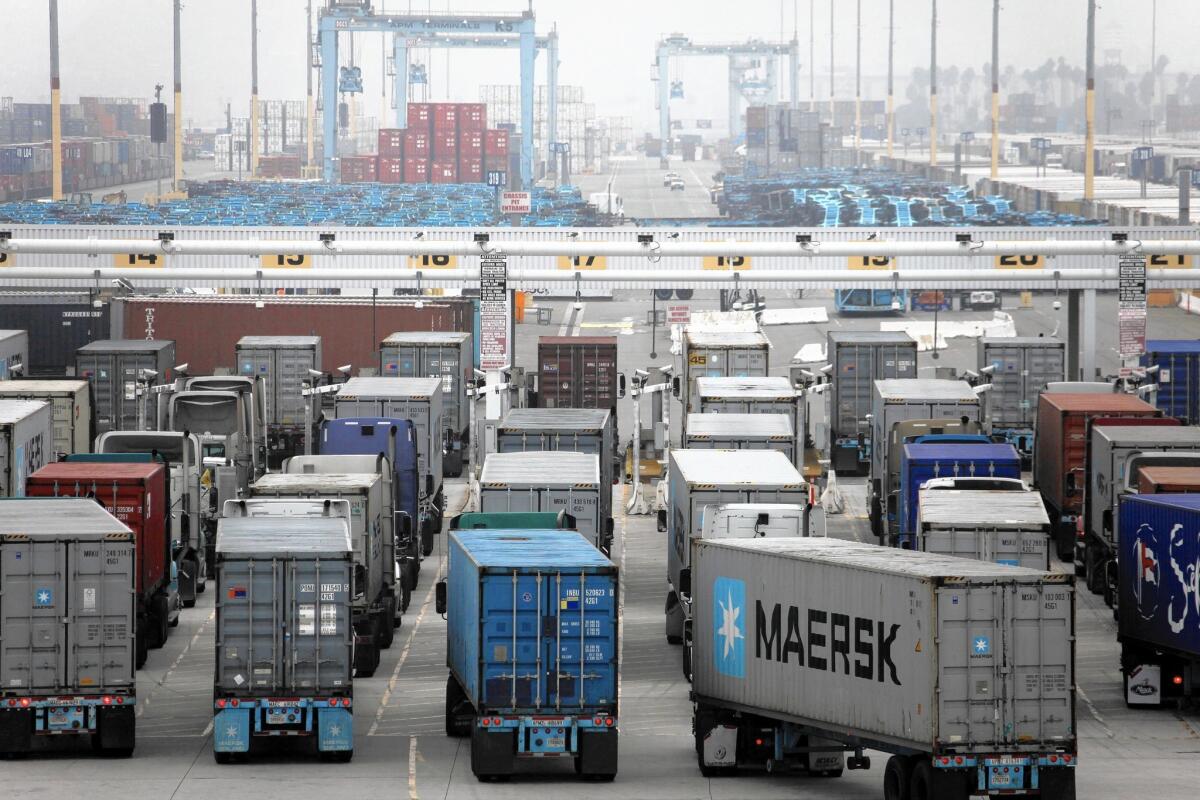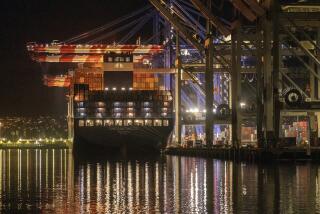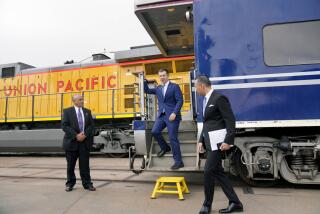Federal mediator to help resolve West Coast port contract dispute

West Coast dockworkers and their shipping line employers have agreed to federal mediation to help resolve a contract dispute that has been partly blamed for severe congestion at ports in Los Angeles and Long Beach.
The request for federal help, from both workers and employers, represents a major shift from the increasingly heated nature of contract talks, which have dragged on for eight months. They have repeatedly accused each other of causing brutal congestion at West Coast ports, including Los Angeles and Long Beach, which together handle roughly 40% of U.S. imports.
The persistent bottlenecks have wreaked havoc on supply chains across the country, delaying the shipment of goods and causing some businesses to lose sales.
“This is the first positive news from the West Coast ports in some time,” Jonathan Gold, vice president of supply chain and customs policy at the National Retail Federation, said in a statement.
The Federal Mediation and Conciliation Service said it assigned a mediator to the case and that negotiations “will continue as soon as possible.” Spokesmen for both the International Longshore and Warehouse Union and employers declined to comment.
Employers have asked for federal mediation since late December; the union agreed to a mediator this week.
The joint request makes it more likely a final agreement will be reached sooner than if the status quo persisted, said Harley Shaiken, a professor and labor expert at UC Berkeley.
“If you are talking versus denouncing each other in a public forum, that means you are looking for ways to settle,” he said.
The Pacific Maritime Assn., which represents employers operating shipping lines and terminals, says work rules, wages and whether certain jobs are done by the union or others remain unresolved. A tentative agreement on healthcare was reached in August.
Mediation has been used before in port disputes. Federal mediators helped East and Gulf Coast dockworkers reach a six-year deal in 2013. And during 2002 negotiations — when a 10-day lockout on the West Coast rippled through the U.S. economy — mediation helped lead to a final agreement.
“It’s a promising development, but by no means is it a slam dunk that we’ll see a swift resolution of this contract dispute,” international trade economist Jock O’Connell said.
That’s because a mediator can only prod both sides to talk and recommend ways to resolve the dispute. The mediator cannot impose any binding resolutions.
Roughly 20,000 dockworkers at 29 West Coast ports have been without a contract since July. And talks have grown increasingly acrimonious since November.
Employers accuse the union of deliberately slowing operations in Los Angeles and Long Beach to gain leverage during negotiations, exacerbating a congestion crisis at the nation’s busiest complex. The president of the local union has denied those accusations.
Slowdown tactics, according to employers, have also been used at Tacoma, Wash., Seattle and Oakland.
The union, in response, says crushing West Coast congestion is the result of employer-induced supply chain snafus, including a shortage of trailers that truckers use to haul goods from the ports and the rise of massive container ships that have overwhelmed the docks.
Before the slowdown accusations surfaced, L.A. and Long Beach were already experiencing the worst congestion in a decade.
On Tuesday, there were eight container ships anchored off the coast of Los Angeles, waiting for the docks to clear, according to the Marine Exchange of Southern California.
“We are hopeful that the involvement of a federal mediator is the missing piece needed to get [a contract] signed,” Los Angeles Mayor Eric Garcetti and Long Beach Mayor Robert Garcia said in a joint statement.
Twitter: @khouriandrew
More to Read
Inside the business of entertainment
The Wide Shot brings you news, analysis and insights on everything from streaming wars to production — and what it all means for the future.
You may occasionally receive promotional content from the Los Angeles Times.











